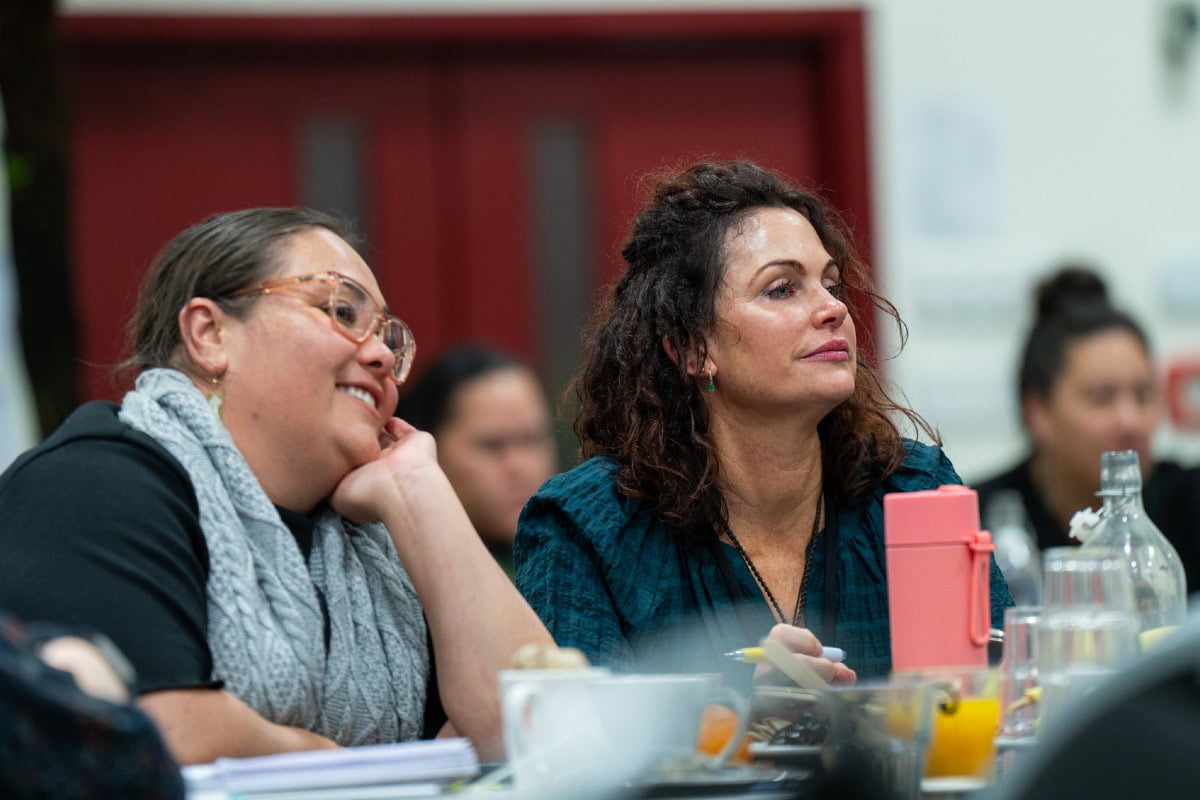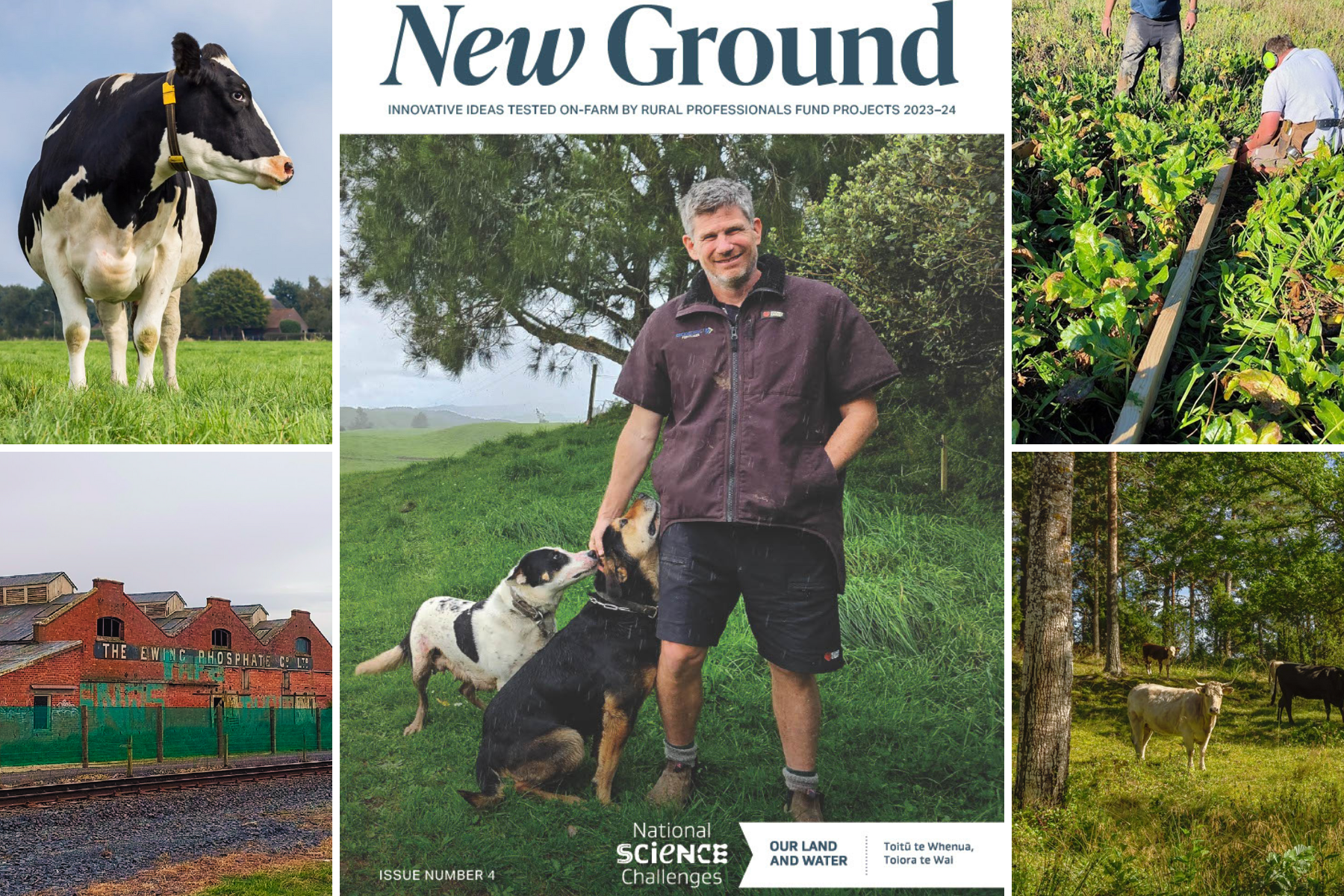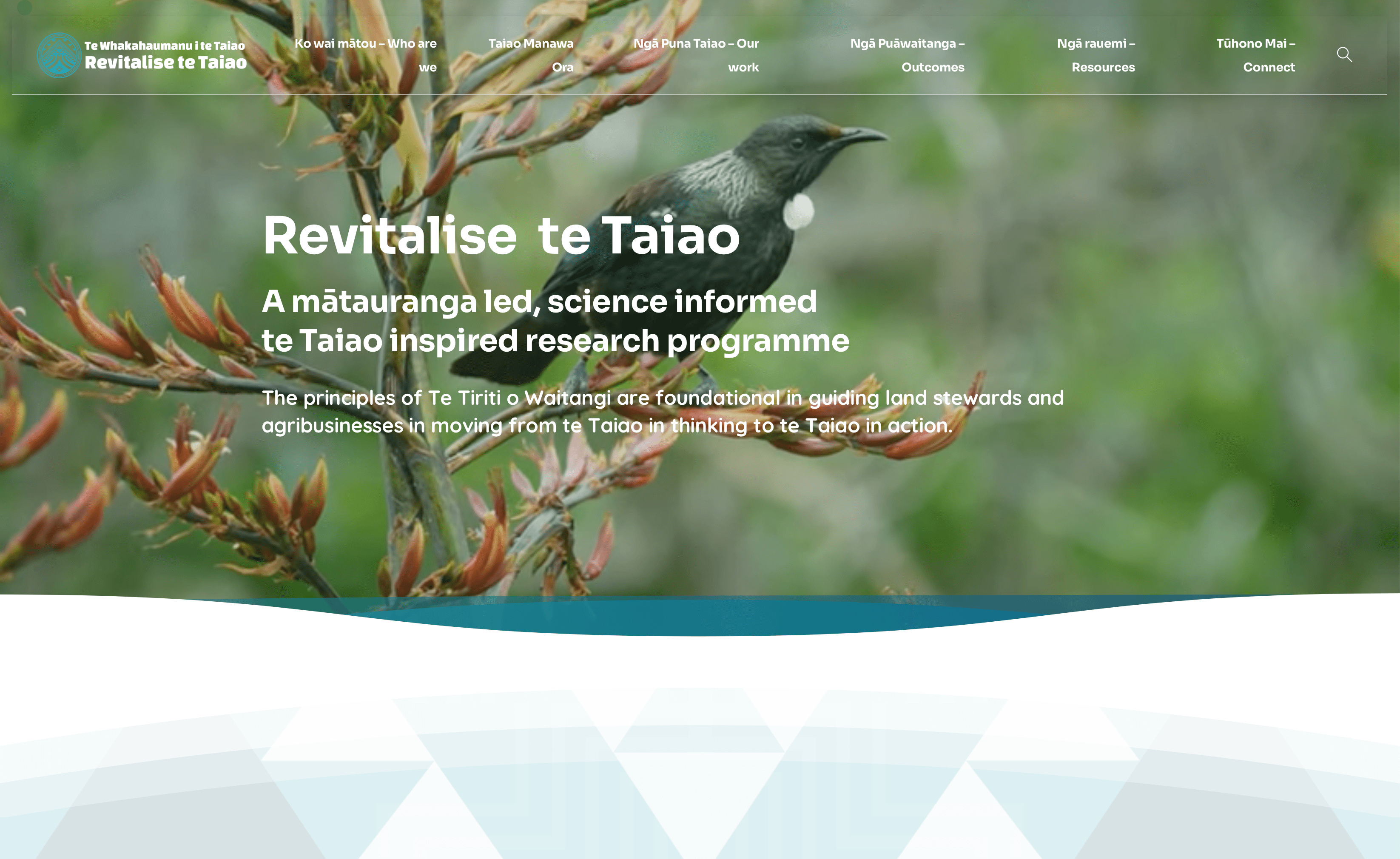Final Chance for “Maverick” Farm Advisors to Apply for Research Funding
Farm advisors with innovative, fresh ideas that could create real change for Kiwi farmers are invited to apply for up to $75,000 in funding, in the fourth and final funding round of the Rural Professionals Fund.
For the fourth – and final – time, rural professionals are invited to team up with farmers to apply for funding to test innovative ideas that help farmers add diversity, increase resilience, and tackle environmental challenges for their farm, catchment, and community.
The Rural Professionals Fund, established in 2020 by the Our Land and Water National Science Challenge, is now accepting applications for funding to support projects that could benefit farming communities. Applications close at 9am on Monday 9 March, with projects to begin on 1 April 2023.
“Kiwi farmers are creative and resourceful, often trying out new ideas and practices because they are curious to see what will happen,” says Prof Rich McDowell, chief scientist at Our Land and Water.
“As a science funder, we’re used to hearing big ideas from scientists seeking research funding. But we wondered, how many promising ideas are stuck on one farm – or inside a farmer or rural professional’s head? Loads, it turns out.”
The fourth and final round of the Rural Professionals Fund will invest up to $75,000 in projects that will rapidly test ideas and innovations within a short nine-month time frame. Project teams must include a rural professional, and a farmer or grower. The team also must include a person with relevant scientific or technical expertise, or mātauranga Māori, or kaupapa Māori research expertise (this may be the rural professional in some cases).
Projects must align with the Our Land and Water objective: to improve Aotearoa’s land and water quality for future generations, while enhancing the value of the primary sector to New Zealand. Communicating the results of both successful and unsuccessful projects to the wider rural profession and farming community is a crucial part of the process.
“We are particularly interested in projects that will help diversify land use and practices, effect behavioural change and create new ways of doing things across the agri-food and fibre system,” explains Prof McDowell.
“We want to see concepts emerge that can generate evidence and move into action quickly, The Rural Professionals Fund allows us to quickly explore a lot of options, and encourage and resource more innovators and entrepreneurs to test their good ideas.”
Chief executive Jo Finer says the NZ Institute of Primary Industry Management is again delighted to support this opportunity to pilot innovative ideas that drive improvement on farm. “Rural professionals play a valuable role as trusted advisors to farmers, and this provides them with a unique opportunity to generate ideas which can be tested with the support of funding.”
“We are particularly interested in projects that will help diversify land use and practices, effect behavioural change and create new ways of doing things”— Richard McDowell, chief scientist for Our Land and Water.
In the previous funding round, the fund received 32 applications, of which 12 projects were funded. These projects encompassed a wide variety of farm systems, industries and ideas, tackling questions including:
- Can weed spray strips be replaced by growing perennial ground cover plants under fruit trees?
- What are the economic and environmental implications of differing wintering options?
- Can pines be used as an effective nurse crop to establish native bush on farm land?
- How do dairy farmers develop a composting shelter or ‘mootel’?
- Will electrocoagulation dairy waste treatment be cost effective and enable water recycling?
- Can green crops capture enough nitrogen for vegetable growing?
- What is needed to enable arable farmers to develop on-farm processing mills to support food security?
The projects all have one thing in common: if the concept was proved, it could create real benefit for farming communities, our land, or our water.
The application form is available at ourlandandwater.nz/RPF-apply. Applications are due by 9am, Monday 6 March 2023. Progress updates about current projects are posted on facebook.com/ourlandandwater
More information:
Author
 View Our Strategy Document 2019 – 2024
View Our Strategy Document 2019 – 2024




One Comment
Hi
Is it too late to put a proposal forward?
With new regulations NPS FW- fish passage, I would like to investigate the effectiveness of fish passage in culverts using wool carpet and wool ropes.
The industry are pushing plastic rope and plastic options which doesn’t to fit with what we are trying to achieve- help build heathier ecosystems. Plastics break off in high water events and break down over time. Plastics also enf up in native fish tummy’s causing lots of problems.